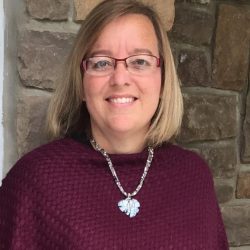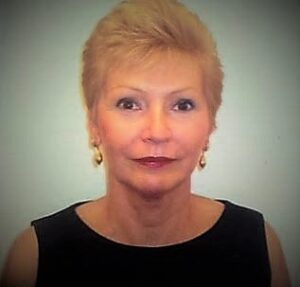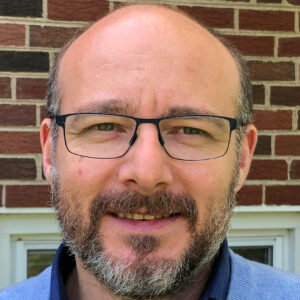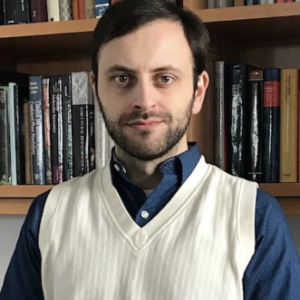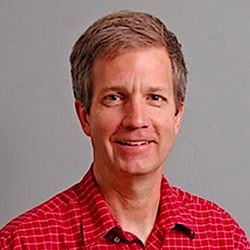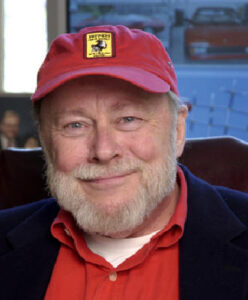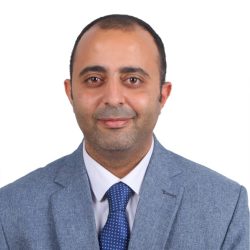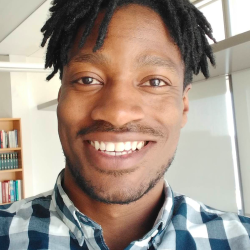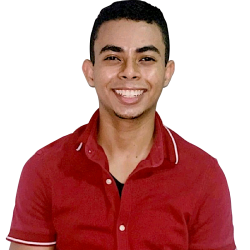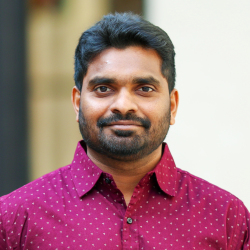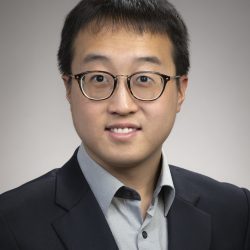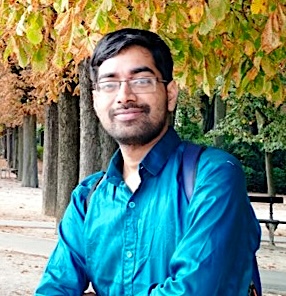Our mission
Taking Innovation Into the Real World
Our mission is to use the knowledge and tools of molecular evolution to advance research and product development in biomedical biodiversity. We accomplish this mission by making fundamental discoveries, developing informatics resources and training the next generation of young scientists.
Please, join us!
Michael L. Klein, Carnell Professor
Meet Our Team

Michael L. Klein
Laura H. Carnell Professor of Science / ICMS Director / TMI Director / Former CST Dean
View Profile
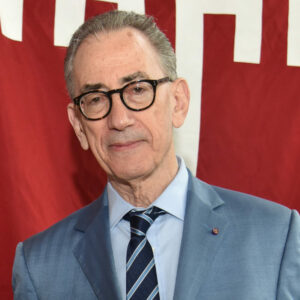
Biography
My research interests focus on the use of theoretical & computational methods to study the properties of molecular solids and liquids and the self-assembly of both natural and synthetic macromolecules. In collaboration with brilliant students and postdocs, I have developed computational methodologies and carried out computer simulations to understand the phase behavior and properties of systems ranging from small molecules, such as water, to larger molecules such as surfactants and lipid bilayers, as well as natural and synthetic macromolecules. Other applications have been aimed at understanding the sensing and gating mechanisms Nature’s nano-scale machines, such as membrane-bound ion channels, as well as designing molecular therapeutics to combat both viral and bacterial infections.
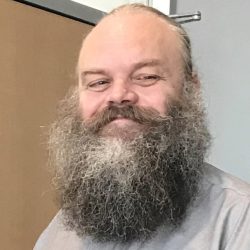
Axel Kohlmeyer
Professor of Research / HPC Director
View Profile
Biography
Axel Kohlmeyer is Associate Director of the Institute for Computational Molecular Science, and the Leader of the High-Performance Computing (HPC) Team at Temple University in Philadelphia, USA.
He is also an External Associate of the International Centre for Theoretical Physics in Trieste, Italy, where he collaborates with ICTP HPC staff on HPC-related activities and teaches in the International HPC Master program hosted by ICTP and SISSA in Trieste.
His main research interests are in software development and engineering for scientific software in general and for simulation and analysis of molecular dynamics simulation on highly parallel modern computer architectures in particular. He also is interested in improving HPC education for scientists and engineers. He is a core developer and co-maintainer of the LAMMPS Molecular Dynamics softwarepackage and has contributed to several other popular scientific software packages like VMD, Quantum-Espresso, HOOMD-blue,CPMD or CP2k.
Past positions of his academic career include the International Centre for Theoretical Physics in Trieste, Italy, the Center for Molecular Modeling at the University of Pennsylvania in Philadelphia, USA, the Center for Theoretical Chemistry at the Ruhr-University Bochum, Germany, and the Department for Theoretical Chemistry at the University of Ulm, Germany.
He obtained his PhD (= Dr.rer.nat.) and Dipl.-Chem. degrees in Theoretical Chemisty at the University of Ulm under the supervision of Professor Wolfgang Witchel and Dr. Eckhard Spohr.
X-ray diffraction and computation yield the structure of alkanethiols on gold(111), A. Cossaro, R.Mazzarello, R. Rousseau, L. Casalis, A. Verdini, A. Kohlmeyer, L. Floreano, S. Scandolo, A. Morgante, M.L. Klein, G. Scoles, Science 321, 943-946 (2008). (Link)
LAMMPS – a flexible simulation tool for particle-based materials modeling at the atomic, meso, and continuum scales, Aidan P. Thompson, H. Metin Aktulg, Richard Berger, Dan S.Bolintineanu, W. Michael Brown, Paul S. Crozier, Pieter J .in ‘t Veld, Axel Kohlmeyer, Stan G. Moore, Trung Dac Nguyen, RayShan, Mark J. Stevens, Julien Tranchida, Christian Trott, Steven J. Plimpton, Computer Physics Communications 271 (2022). Link
Fast Analysis of Molecular Dynamics Trajectories with Graphics Processing Units: Radial Distribution Function Histogramming, B.G. Levine, J.E. Stone, A. Kohlmeyer, J. Comput. Phys. 230(9), 3556-3569 (2011) (Link)
TopoGromacs: Automated Topology Conversion from CHARMM to GROMACS within VMD,Josh V. Vermaas, David J. Hardy, John E. Stone, Emad Tajkhorshid, and Axel Kohlmeyer, AC Publications (2016). Link
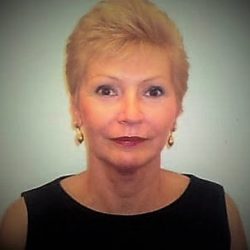
Simona Percec
Research Professor
View Profile
Biography
Dr. Simona Percec is a Research Professor in the Department of Chemistry in the College of Science and Technology and an Associate Editor of the ACS journal, Biomacromolecules. Simona has a broad technical background through working at Standard Oil/BP/Amoco CR&D (1982-1999) where she led various research programs in the fields of polymer and catalysis. As a Research Fellow at DuPont CRD (1999-2016) Simona was involved in a wide range of research areas and led programs in organic, polymer and biopolymer design and synthesis with particular emphasis on applications including molecular electronics, biosensors, electrochromics, anticorrosive coatings, polymer-glass hybrids, thermoplastic carbon fiber composites, renewably-resourced polymers and self-assembled systems. Simona has authored 58 original publications, 39 patents issued and 5 patent applications. She has been an invited speaker and chairperson at National and International meetings. She served in numerous committees including the DuPont Young Professor Grant Nomination Committee, Biomacromolecules/Macromolecules Young Investigator ACS Award, and as the Chair of the DuPont Discovery Chemistry Series Seminars and the Carothers Award Committee.
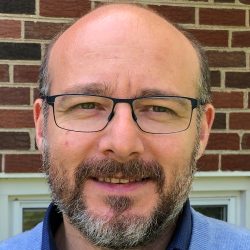
Vincenzo Carnevale
Associate Professor
View Profile
PhD: 2007, SISSA – Scuola Internazionale Superiore di Studi Avanzati, Trieste, Italy
Affiliation: Department of Biology, Temple University
Phone: 215-204-4214
Email: [email protected]
Office: SERC 710
Bio and Research description:
Vincenzo Carnevale received B.Sc. and M.Sc. degrees in Physics from the University of Pisa and a PhD from SISSA – Scuola Internazionale Superiore di Studi Avanzati in Trieste, Italy. He currently holds the position of Associate Professor in the Department of Biology.
The Carnevale research group uses statistical physics and machine learning approaches to investigate sequence-structure-function relations in proteins. A central theme of the group’s research is how interactions give rise to collective phenomena and complex emergent behaviors. At the level of genes, the group is interested in epistasis – the complex entanglement phenomenon that causes amino acids to evolve in a concerted fashion – and how this shapes molecular evolution. At the cellular level, the group investigates how intermolecular interactions drive biomolecules toward self-organization and pattern formation. A long-term goal of the group is understanding the molecular underpinnings of electrical signaling in excitable cells. Toward these goals, the group applies and actively develops an extensive arsenal of theoretical and computational approaches including statistical (mean)field theories, Monte Carlo and molecular dynamics simulations, statistical inference of generative models, and deep learning.
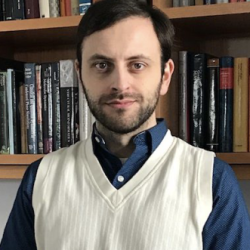
Mark DelloStritto
Research Assistant Professor
View Profile
Biography
Mark DelloStritto received a Ph.D. in Physics from the Pennsylvania State University in 2017 and joined Professor Klein’s research group as a postdoctoral fellow. Mark’s research is focused on studying the relationship between structure, dynamics, and chemistry in fluids and polymers. Recent topics include the adsorption of water and ions at oxide interfaces, the dependence of the structural and electronic properties of ion solvation on the choice of density functional, vibrational spectroscopy of water and polymer systems, improving the properties of polymer systems by modifying polymer chemistry, and the application of neural network potentials to extend ab-initio calculations.
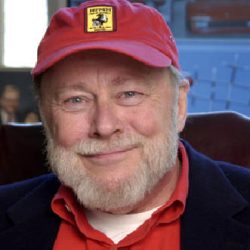
George Petersson
Distinguished Adjunct Professor of Chemistry
View Profile
Biography
Selected Awards | Ph.D. California Institute of Technology B.Sc. The City College of New York Kitasato Medal, John S. Burlew Award from the Connecticut Valley Section of the American Chemical Society |
Interests
Select Publications
“Improved Geometries and Frequencies with the PFD-3B DFT Method” Jason M. Breslin, Michael J. Frisch, and George A. Petersson, J. Phys. Chem.,A, 126, 5814-5820 (2022) LINK
“A Bond-Energy/Bond-Order and Populations Relationship” Zulueta, Barbaro; Tulyani, Sonia; Westmoreland, Phillip; Frisch, Michael; Petersson, E. James; Petersson, George; Keith, John Journal of Chemical Theory and Computation 18, 4774-4794(2022). LINK
“Synthesis and characterization of fluorescent amino acid dimethylaminoacridonylalanine (PJ-11498VP)” Chloe M. Jones, George A. Petersson, and E. James Petersson, Arkivoc 2021,97 (2021). LINK
“Three Body Dispersion Corrections to the Spherical Atom Model: the PFD-3B Density Functional” George A. Petersson, Michael J. Frisch, Frank Dobek, and Barbaro Zulueta, J. Phys. Chem. 124, 10296 (2020). LINK
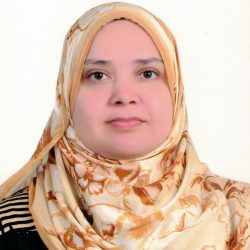
Manal A Nael
Researcher Assistant Professor
View Profile
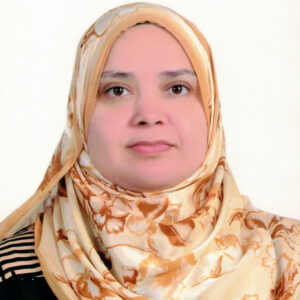
Biography
Dr. Nael has expertise in medicinal chemistry, molecular modeling, and computational drug design, and she is adept at using several techniques of medicinal chemistry, computational chemistry, bioinformatics, and theoretical biophysics. Dr. Nael uses computational methods to explore the properties of polymer materials as well as doing experiments on different ways of processing these materials to enhance performance.
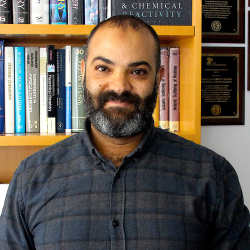
Ahmed M. Abdelwaly
Research Assistant Professor
View Profile
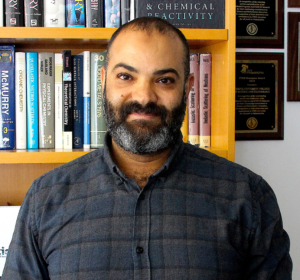
Biography
Ahmed Abdelwaly obtained a bachelor’s degree in Pharmacy from Sana’a University – Yemen in 2004, with a cumulative grade of very good. He joined the academic sector in 2008 and worked as a teaching assistant at Thamar University in Yemen for four years , then he moved to Egypt to finish his postgraduate studies. He obtained a master’s degree in Medicinal Chemistry from Suez Canal University in 2016, then a Ph.D. in the same field from Cairo University in 2021. His research was conducted during the past ten years in drug design and discovery laboratories, and he focused on the design and organic synthesis of small molecules to target medical conditions such as chronic obstructive pulmonary disease, bronchial asthma, addiction, Alzheimer’s disease, and inflammatory diseases.
After obtaining his master’s degree, he worked as an assistant lecturer at the Department of Pharmaceutical Chemistry at Suez Canal University for two years. In 2017, he joined the Biomedical Sciences Program at Zewail City of Science and Technology as an assistant lecturer and Researcher, then was promoted in 2022 to become an Assistant Professor and postdoctoral research associate at the same university.
Ahmed is currently a Research Assistant Professor in the Institute for Computational Molecular Sciences (ICMS) at Temple University.
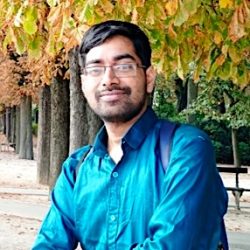
Subhajit Acharya
Postdoctoral Research Fellow
View Profile
Biography
I received my B.Sc. in Chemistry from Ramakrishna Mission Residential College, Narendrapur (Kolkata, India) in 2016. Subsequently, I joined the integrated Ph.D. program at the Indian Institute of Science, Bengaluru, India. After completing my M.Sc., I joined Prof. Biman Bagchi’s research group at the Solid State and Structural Chemistry Unit of the Indian Institute of Science (Bengaluru, India) in 2018. During my Ph.D., I formulated the multidimensional non-Markovian theory and explored it in studying kinetics in several systems, such as the cis-trans isomerization reaction of stilbene, insulin dimer dissociation in water, and gas-liquid nucleation. I also studied the diffusion-entropy scaling relation, the hydrodynamic Stokes law at molecular length scales, microdroplet chemistry, dielectric relaxation of dipolar confined fluids, etc. Currently, I am working with Prof. Michael L. Klein’s group at Temple University as a post-doctoral research associate. Looking ahead, I aspire to remain in academia to continue my research and teaching.
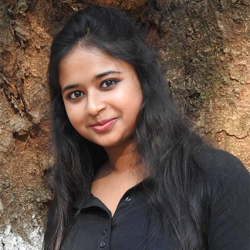
Susmita Sarkar
Post Doctorate


